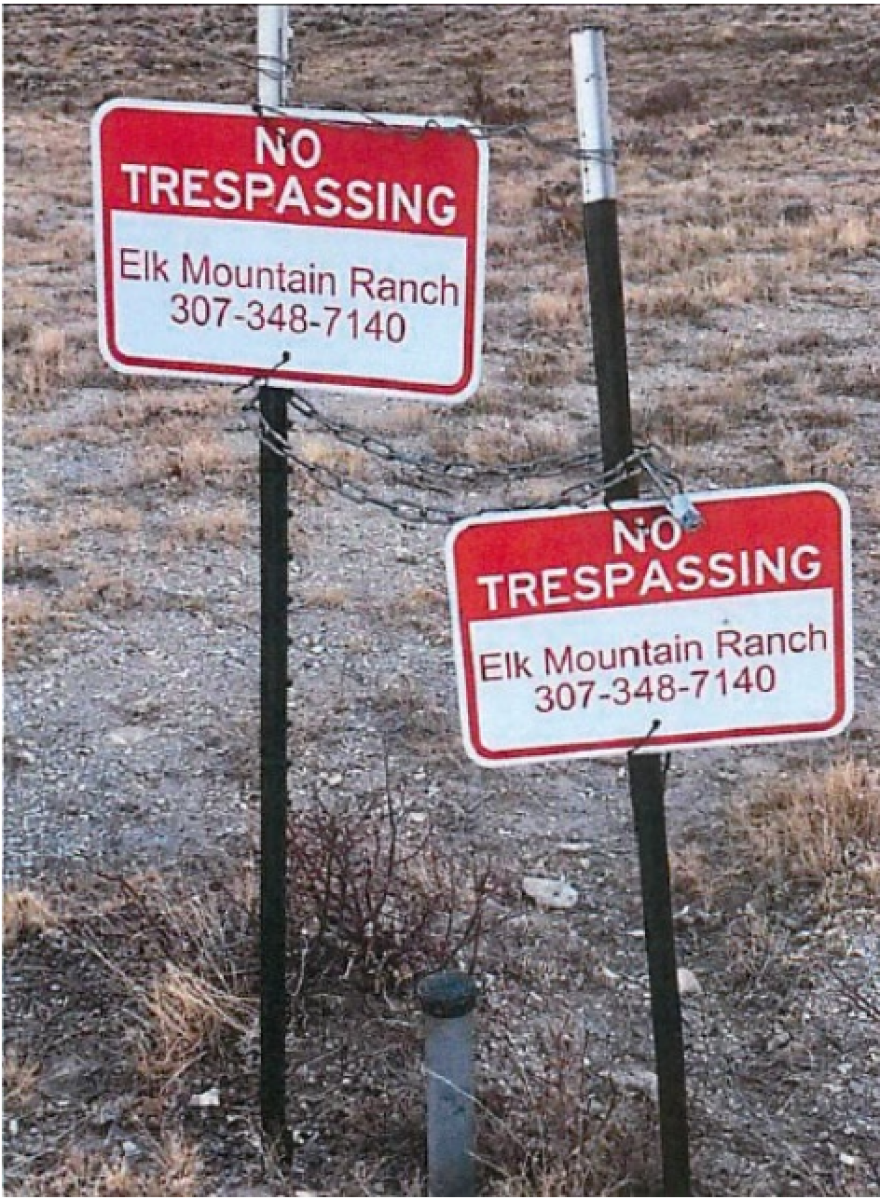Recreationists across several western states will have easier access to millions of acres of public land following a federal appeals court ruling last week.
A three-judge panel at the 10th Circuit Court of Appeals in Denver unanimously sided with a group of Missouri hunters who crossed from one section of public land to another, passing over a corner shared with private property in south-central Wyoming.
“For all public land users, this is just a monumental win for access,” said Devin O’Dea, the western policy and conservation manager for Backcountry Hunters and Anglers. The nonprofit filed a friend of the court brief backing the hunters and raised money for their legal defense.

Public land advocates argue that “corner crossing” is necessary to access public land that would otherwise be “landlocked” due to checker-boarded private and public parcels. This pattern of ownership is widespread in the West, a result of land disposal policies during the 1800s to promote railroad expansion. But the legality of corner-crossing has long been uncertain.
“While the dispute may seem trivial,” Judge Timothy M. Tymkovich wrote in the ruling, “at its core, it implicates centuries of property law and the settlement of the American West.”
The hunters twice traveled to Elk Mountain Ranch, owned by Fred Eshelman. The 50-square-mile property includes about 11,000 acres of federal and state land within it.
In 2020, the hunters maneuvered their way around ‘No Trespassing’ signs and a small chain fence. The next year, they brought a ladder. Both times, their feet and equipment never touched the private ranch ground. But their bodies crossed into the airspace above. That, the ranch owner argued in a lawsuit, meant the hunters had trespassed.
But the appeals court decision upheld , stating the ranch could not deny access to federal public lands for lawful purposes. It also affirmed that corner-crossing is not trespassing, as long as private land is not physically touched. Advocates said this decision protects recreationists in states under the 10th Circuit’s jurisdiction: Oklahoma, Kansas, New Mexico, Colorado, Wyoming and Utah.

“I think, absolutely, we're going to see a lot more people being willing to corner-cross because there was some ambiguity in the past,” said O’Dea.
Advances in digital mapping technology have made it easier to identify land ownership. But, by private property. Much of it lies in states not covered by the appeals court ruling, such as Nevada, Arizona, Montana and Idaho.
“People in those states might want to be a little bit more cautious,” said O’Dea.
The ruling could be cited if future lawsuits are brought against corner-crossers in other states, but for now, the legal picture outside of the 10th Circuit remains murky.
O'Dea said states could cement the legality of corner-crossing by passing legislation. But recent attempts or conversations in state legislatures, including in Colorado and Nevada, have stalled.
The ranch could choose to appeal to a larger panel of appeals court judges or to the U.S. Supreme Court. Their attorney did not respond to a request for comment.
Hanna Merzbach of Wyoming Public Media contributed reporting to this story.
This story was produced by the Mountain West ���ڱ��� Bureau, a collaboration between Wyoming Public Media, Nevada Public Radio (KNPR) in Las Vegas, Boise State Public Radio in Idaho, KUNR in Nevada, KUNC in Colorado and KANW in New Mexico, with support from affiliate stations across the region. Funding for the Mountain West ���ڱ��� Bureau is provided in part by the .




